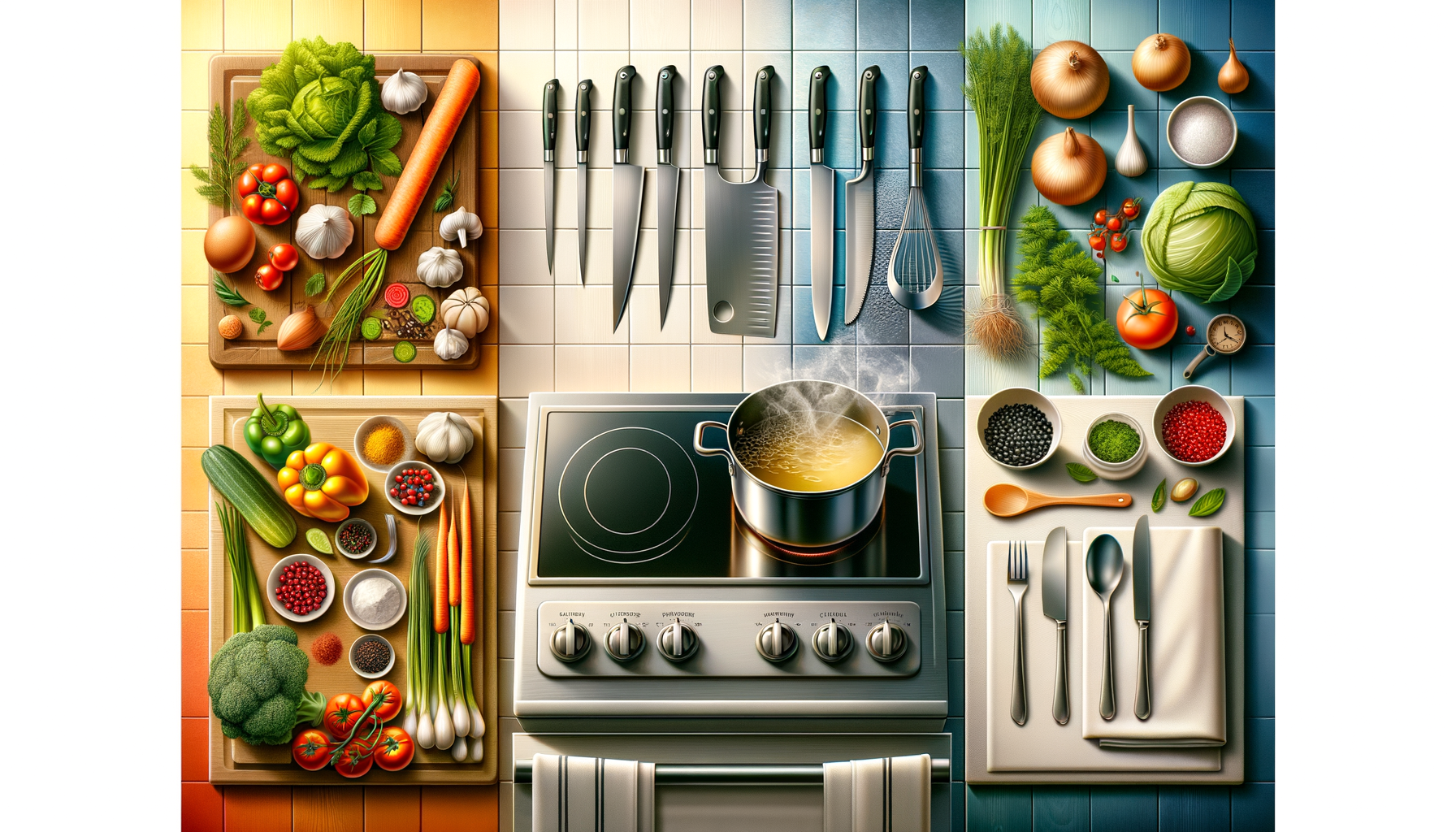Why Culinary Students Master These 5 Habits First
These practices are simple, repeatable, and help create a strong kitchen foundation.

Introduction: The Foundation of Culinary Excellence
Embarking on a culinary journey requires more than just a passion for food. It demands mastering essential habits that lay the groundwork for success in the kitchen. For culinary students, these foundational practices are vital, not only for their academic pursuits but also for their future careers. This article explores five key habits that culinary students prioritize, providing insights into why these habits are crucial for anyone looking to excel in the culinary arts.
Mise en Place: The Art of Preparation
The French term „mise en place“ translates to „everything in its place,“ and it’s a cornerstone habit for culinary students. This practice involves organizing and arranging ingredients and tools before cooking begins. By doing so, chefs can focus on the cooking process without unnecessary interruptions. The benefits of mise en place extend beyond efficiency; it also enhances the quality of the final dish by ensuring that all components are ready and available at the right moment.
Adopting this habit involves several steps:
- Carefully reading the recipe and understanding the sequence of steps.
- Gathering all necessary ingredients and measuring them accurately.
- Preparing tools and equipment in advance.
Mise en place not only saves time but also reduces stress and minimizes errors, making it an indispensable habit for culinary students and professionals alike.
Knife Skills: Precision and Safety
Knife skills are fundamental for any aspiring chef. Culinary students dedicate significant time to mastering the art of using knives efficiently and safely. Proper knife techniques ensure precision in cutting, which is crucial for both the presentation and cooking of food. Moreover, good knife skills enhance safety in the kitchen, reducing the risk of accidents.
Culinary students focus on:
- Learning different cutting techniques such as chopping, dicing, and julienning.
- Understanding the appropriate use of various types of knives.
- Maintaining sharp knives to ensure clean cuts and prevent slips.
By honing their knife skills, culinary students can work more confidently and effectively, contributing to a more streamlined and professional kitchen environment.
Tasting and Adjusting: Developing a Refined Palate
A refined palate is essential for creating dishes that are not only delicious but also balanced in flavor. Culinary students learn the importance of tasting their food at various stages of preparation and making necessary adjustments. This habit allows them to understand the interplay of flavors and how to achieve the desired taste profile.
Key aspects of this habit include:
- Regularly tasting dishes during cooking to assess seasoning and flavor balance.
- Understanding the impact of different ingredients on the overall taste.
- Being open to experimentation and adjusting recipes as needed.
By developing this habit, culinary students enhance their ability to create dishes that satisfy diverse palates, preparing them for the dynamic demands of the culinary world.
Clean as You Go: Maintaining Order in the Kitchen
Keeping a clean and organized workspace is crucial in any kitchen setting. Culinary students are taught the habit of cleaning as they go, which involves tidying up their work area and washing utensils and equipment as they are used. This practice not only promotes hygiene but also improves efficiency by preventing clutter and confusion.
Benefits of this habit include:
- Reducing the risk of cross-contamination and foodborne illnesses.
- Ensuring a more pleasant and professional working environment.
- Saving time on post-cooking cleanup.
By adopting the clean-as-you-go habit, culinary students learn to maintain high standards of cleanliness and organization, which are essential in both educational and professional kitchens.
Conclusion: Building a Strong Culinary Foundation
The five habits discussed in this article are more than just techniques; they are the foundation upon which culinary excellence is built. For culinary students, mastering these habits is crucial for success in their studies and future careers. By focusing on preparation, precision, flavor, and cleanliness, they develop skills that will serve them well throughout their culinary journey. Whether you’re a student or an aspiring home cook, incorporating these habits into your routine can elevate your cooking and enhance your kitchen experience.